We now to peace and darkness and Earth and thee restore thy creature that thou madest and wilt cast forth no more
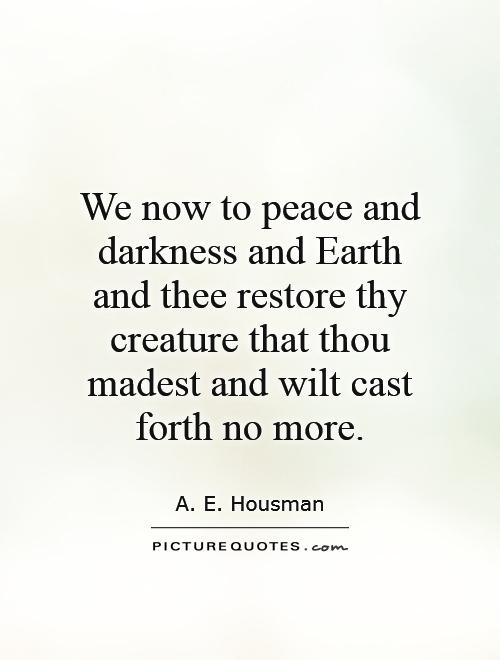
We now to peace and darkness and Earth and thee restore thy creature that thou madest and wilt cast forth no more
In the poem "To an Athlete Dying Young" by A.E. Housman, the line "We now to peace and darkness and Earth and thee restore thy creature that thou madest and wilt cast forth no more" reflects the idea of finding solace and rest in death. Housman's work often explores themes of mortality, loss, and the fleeting nature of life, and this particular line encapsulates the acceptance of death as a natural part of the cycle of existence.The phrase "We now to peace and darkness" suggests a sense of calm and tranquility that comes with death. It implies a release from the struggles and hardships of life, and a return to a state of rest and quiet. The mention of Earth further emphasizes the idea of returning to the natural world, to be at one with the elements and the earth itself. This connection to the earth symbolizes a sense of unity with the universe, a feeling of being part of something greater than oneself.
The line continues with "and thee restore thy creature that thou madest and wilt cast forth no more," which can be interpreted as a plea to the divine to welcome the deceased back into its embrace and to not let them suffer any longer. The use of the word "creature" suggests a sense of vulnerability and fragility, highlighting the delicate nature of human life. The idea of being "cast forth no more" implies a sense of finality, a resolution to the struggles and pain that the individual may have faced in life.
Overall, this line from Housman's poem conveys a sense of acceptance and peace in the face of death. It speaks to the inevitability of mortality and the idea that death is not an end, but a return to the earth and a release from suffering. It is a poignant reminder of the transient nature of life and the importance of finding solace and rest in the face of death.



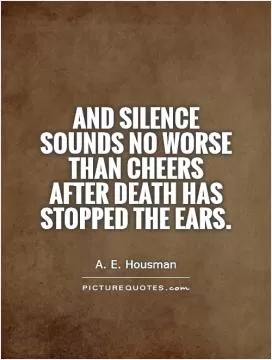
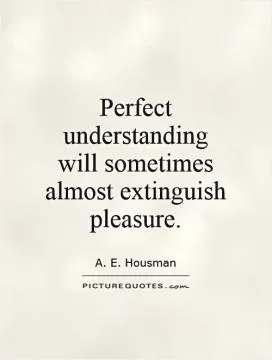
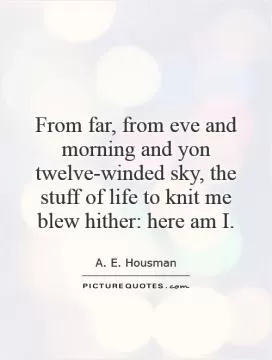
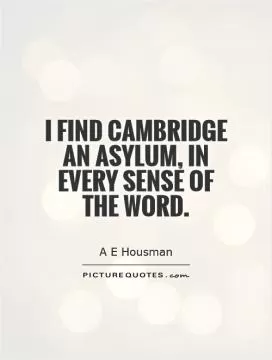

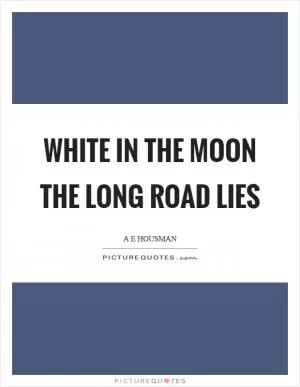
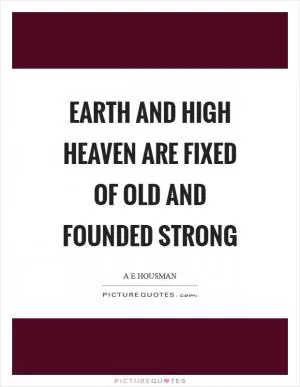
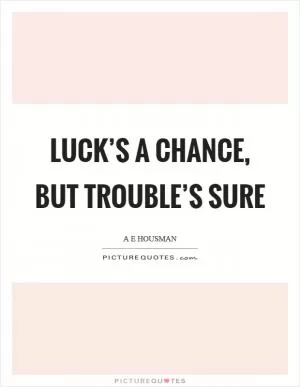

 Friendship Quotes
Friendship Quotes Love Quotes
Love Quotes Life Quotes
Life Quotes Funny Quotes
Funny Quotes Motivational Quotes
Motivational Quotes Inspirational Quotes
Inspirational Quotes